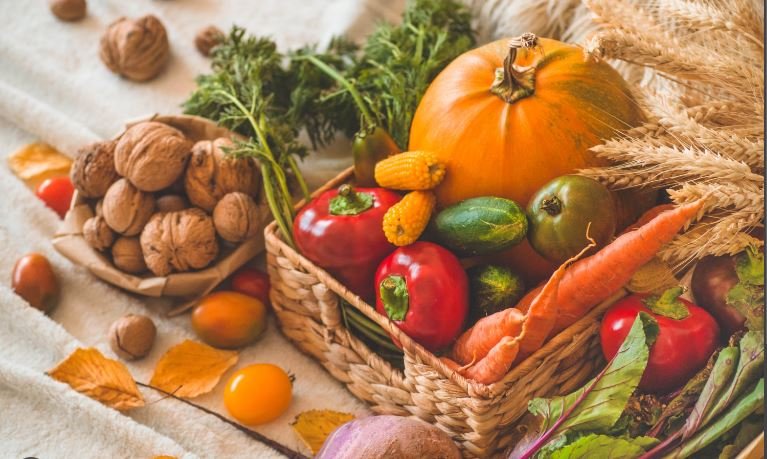
25, Jul 2024
The Importance of Local and Seasonal Produce
Local and seasonal produce offers numerous benefits that extend beyond the kitchen. From supporting local economies to enhancing flavor and nutrition, choosing local and seasonal fruits and vegetables has a significant impact on our health and the environment. Let’s explore the importance of local and seasonal produce and how it can enrich our lives.

Enhanced Flavor and Freshness
Firstly, local and seasonal produce often boasts superior flavor and freshness compared to items that have traveled long distances. Fruits and vegetables picked at their peak ripeness retain more of their natural flavor and nutritional content. For example, tomatoes harvested in summer are juicier and more flavorful than those picked early and ripened artificially during winter. This freshness not only improves the taste of meals but also encourages more creative and enjoyable cooking.
Nutritional Benefits
Additionally, seasonal produce tends to be more nutrient-dense. When fruits and vegetables are grown in their natural season, they have a chance to develop fully, resulting in higher concentrations of vitamins, minerals, and antioxidants. For instance, winter squash is rich in vitamins A and C, which are essential for immune health. By eating produce that’s in season, you maximize the nutritional benefits of your diet.
Support for Local Economies
Moreover, purchasing local produce supports local farmers and economies. When you buy from local farmers’ markets or community-supported agriculture (CSA) programs, you contribute to the livelihood of farmers and help sustain small-scale agriculture. This support fosters a stronger local economy and reduces the reliance on industrial farming practices. Additionally, local markets often offer unique and heirloom varieties that are not available in large supermarkets.
Environmental Sustainability
Furthermore, choosing local and seasonal produce is environmentally friendly. By reducing the distance food travels from farm to plate, you lower the carbon footprint associated with transportation. Additionally, local farms often employ more sustainable practices and use fewer chemical inputs compared to large industrial farms. Seasonal farming helps maintain soil health and reduces the need for artificial fertilizers and pesticides, promoting a more eco-friendly food system.
Reduced Packaging and Waste
In addition, local and seasonal produce typically requires less packaging than items that are shipped from faraway locations. Seasonal vegetables and fruits often come with minimal packaging, which reduces waste and the environmental impact associated with plastic and other materials. This reduction in packaging helps lower the overall environmental footprint of your food.
Economic and Culinary Diversity
Also, incorporating local and seasonal produce into your diet promotes culinary diversity. Seasonal ingredients encourage experimentation with new recipes and cooking methods. Farmers’ markets and local food festivals often showcase a wide variety of seasonal produce, introducing consumers to unique flavors and traditional dishes. This variety not only enhances your culinary experience but also connects you with regional food traditions and cultural practices.
Stronger Community Connections
Moreover, buying local produce fosters a sense of community. Engaging with local farmers and producers at markets or through CSA programs helps build relationships and strengthens community ties. These connections create a more resilient food system and encourage greater awareness of where your food comes from. By supporting local growers, you contribute to a more connected and sustainable community.
Conclusion
In conclusion, the importance of local and seasonal produce extends beyond flavor and nutrition. By choosing locally grown and seasonal fruits and vegetables, you support local economies, promote environmental sustainability, and reduce food waste. Additionally, you enrich your culinary experience and foster stronger community connections. Embracing local and seasonal produce is a meaningful way to make a positive impact on your health and the environment.
- 0
- By Jill Morris

